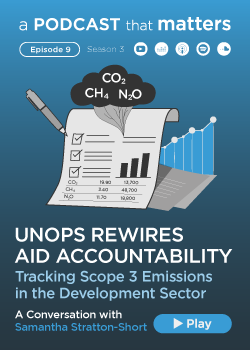Print

Humanitarian Relief for Malian Refugees and Livelihood Support for Local Agro-Pastoralists in Burkina Faso
Details
Locations:Burkina Faso
Start Date:Mar 1, 2013
End Date:Dec 31, 2013
Sectors: Disaster Reduction & Humanitarian Relief, Social Development
Categories:Consulting services
Date posted:Aug 16, 2013
Description
Donors: Austrian Development Cooperation (ADA), Foundation UNESCO, HOPE’87
The “Tuareg rebellion” in Mali that started in January 2012 brought masses of Malian refugees across the northern borders of neighboring Burkina Faso. Most of these refugees have ever since been staying in refugee camps in the north of Burkina Faso known as the Sahel region. The camp “Mentao” in the Province of Soum is among the biggest refugee camps in Burkina Faso, hosting 16.546 refugees (as per UNHCR data of May 2013). Living conditions in the camps are tough although many institutions, international organizations and NGOs support the refugees as good as they can. The “Opération Serval” – the military offensive led by the French army and started on 10th of January 2013 in Mali – has brought even more Malian refugees (10.490 as per UNHCR fact sheet) to Burkina Faso and worsened living conditions in the camps, especially in Mentao that is relatively close to the Malian border. Furthermore, another refugee camp (Camp Damba) that was located too close to the border, was closed by UNHCR and the concerned refugees were moved to the most southern part of Camp Mentao. As confirmed also by a needs assessment conducted by HOPE’87 in Camp Mentao, most of the newcomers were arriving in a miserable condition with weak hygienic and health conditions.
This project is a continuation of previous humanitarian aid projects of HOPE’87 in the Sahel region of Burkina Faso in support of the refugees and their host societies. It focuses on the provision of food and non-food items for newly arrived refugees in Camp Mentao as well as livelihood support of the subsistence farmers in the neighbouring villages of Camp Mentao. This double track strategy aims at preventing social tensions and clashes between the refugees and the host societies as the massive influx of refugees in Camp Mentao leads to an expanded camp area and some of the space used were used as fields and pasture land by the local agro-pastoralists around the camp.
Following the LRRD-Approach (Linking Relief, Rehabilitation and Development) this projects also aims at ultimately enhancing the resilience of the beneficiaries to the adverse impacts of climate change.
Cross cutting issues:
Poverty reduction; Promotion of democracy and human rights ; Inclusion of disadvantaged groups such as children, elderly persons, persons with disabilities ; Gender ; Environment ; LRRD (Linking Relief, Rehabilitation and Development)
Project Background:
Almost half of the population of Burkina Faso lives in extreme poverty and has little access to social services. Nearly one-third of the country is acutely malnourished and child malnutrition rates are among the highest in the World leading.
The combination of climatic shocks, soaring food prices and regional political insecurity continues to strain the ability of vulnerable households to cope.
Therefore, the large numbers of Malian refugees (for a small country like Burkina Faso) seeking protection in the already food-insecure and drought‐stricken regions in the north of the country risk to continue to exacerbate the already volatile food security situation of the host communities, i.e. the rural communities.

